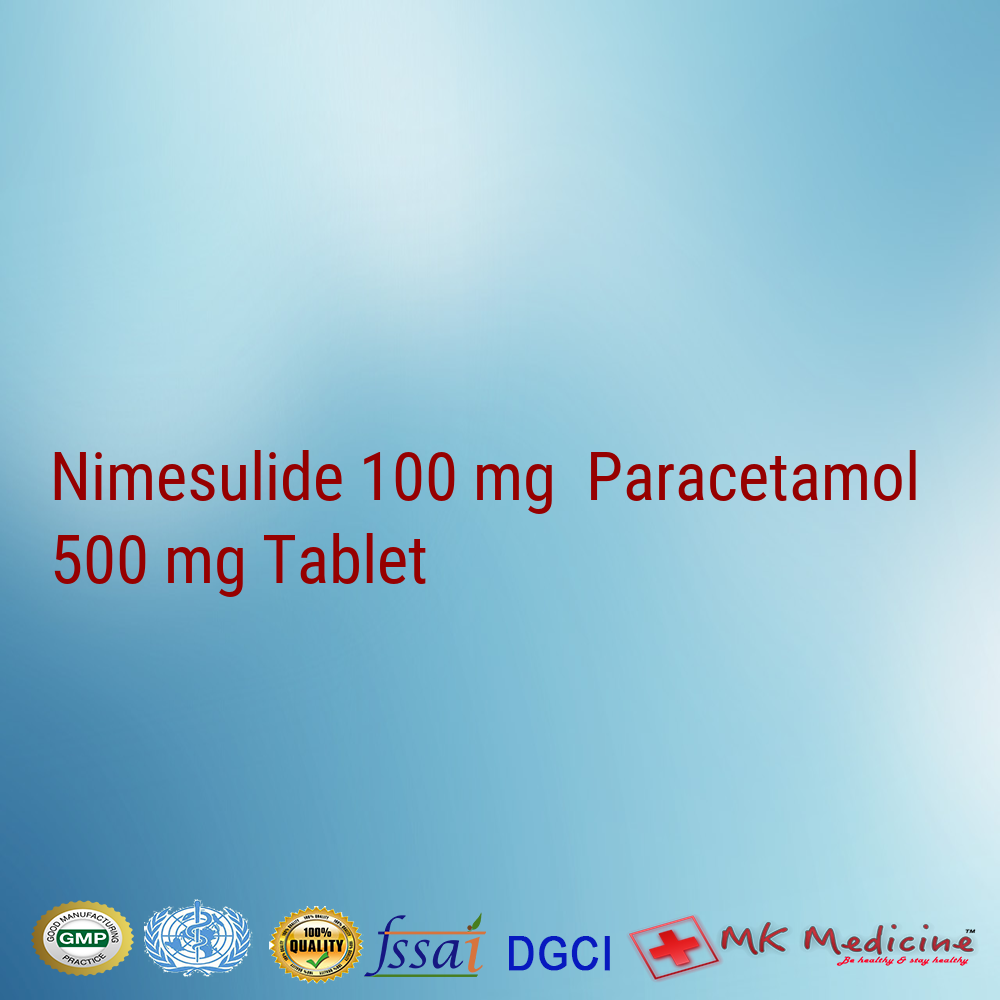Nimesulide is a nonsteroidal anti-inflammatory drug (NSAID) with anti-inflammatory, anti-pyretic, and analgesic properties. It inhibits prostaglandin synthetase/cyclooxygenase, which limits prostaglandin production. Its cyclooxygenase inhibiting potency is intermediate, but is relatively selective for the cyclo-oxygenase-2 (COX-2) thus the potential for gastric injury and intolerance is less. It is also a free radical scavenger, and helps protect against the tissue damage that occurs during inflammation. Absorption: Well absorbed from GI tract following oral admin. Peak plasma levels:1-3 hr. With bid admin of 100 mg, steady-state is achieved within 24-36 hr. Distribution: 99% bound to plasma protein. Metabolism: Hepatic biotransformation; principal metabolite is 4-hydroxy-nimesulide. Excretion: Elimination half-life: 2-5 hr. Metabolites in urine: 80%, feces: 20% of the administered dose.9% bound to plasma protein.
MK Medicine is a leading pcd franchise provider, contract manufacturer and hospital supplier of WHO-GMP certified Nimesulide 100 mg Paracetamol 500 mg Tablet
Additive hepatotoxic effects with known hepatotoxins: anti-convulsants (e.g. valproic acid), anti-fungals (e.g. ketoconazole), anti-tuberculous drugs (e.g. isoniazid), tacrine, pemoline, amiodarone, methotrexate, methyldopa, amoxicillin/clavulanic acid. May decrease the oral bioavailability of furosemide and the natriuretic and diuretic response to furosemide. Increased risks of GI and hepatic adverse effects with other NSAIDs, including aspirin. May increase anti-coagulant effect of warfarin. Potentiates the action of phenytoin. May be displaced from binding sites with fenofibrate, salicylic acid, and tolbutamide. Interactions between NSAIDs and lithium, probenecid and ciclosporin, have been documented.
Epigastric discomfort, heartburn or abdominal cramps, nausea, vomiting and diarrhoea; skin rash, pruritus, oedema, headache, dizziness, drowsiness; hypersensitivity reactions (e.g. bronchospasm, rhinitis, angioedema urticaria); GI haemorrhage/perforation; bullous/erosive stomatitis, purpura, thrombocytopenia, toxic epidermal necrolysis, haematuria, oliguria, and renal failure; increases in liver enzymes. Potentially Fatal: Fatal hepatitis, Stevens Johnson syndrome.
Important Notice:- The Database is still under development and may contain inaccuracies. It is not intended as a substitute for the expertise and judgement of your physician, pharmacist or other healthcare professional. It should not be construed to indicate that the use of any medication in any country is safe, appropriate or effective for you. Consult with your healthcare professional before taking any medication.


Aceclofenac 200 mg Sustained Release Tablet